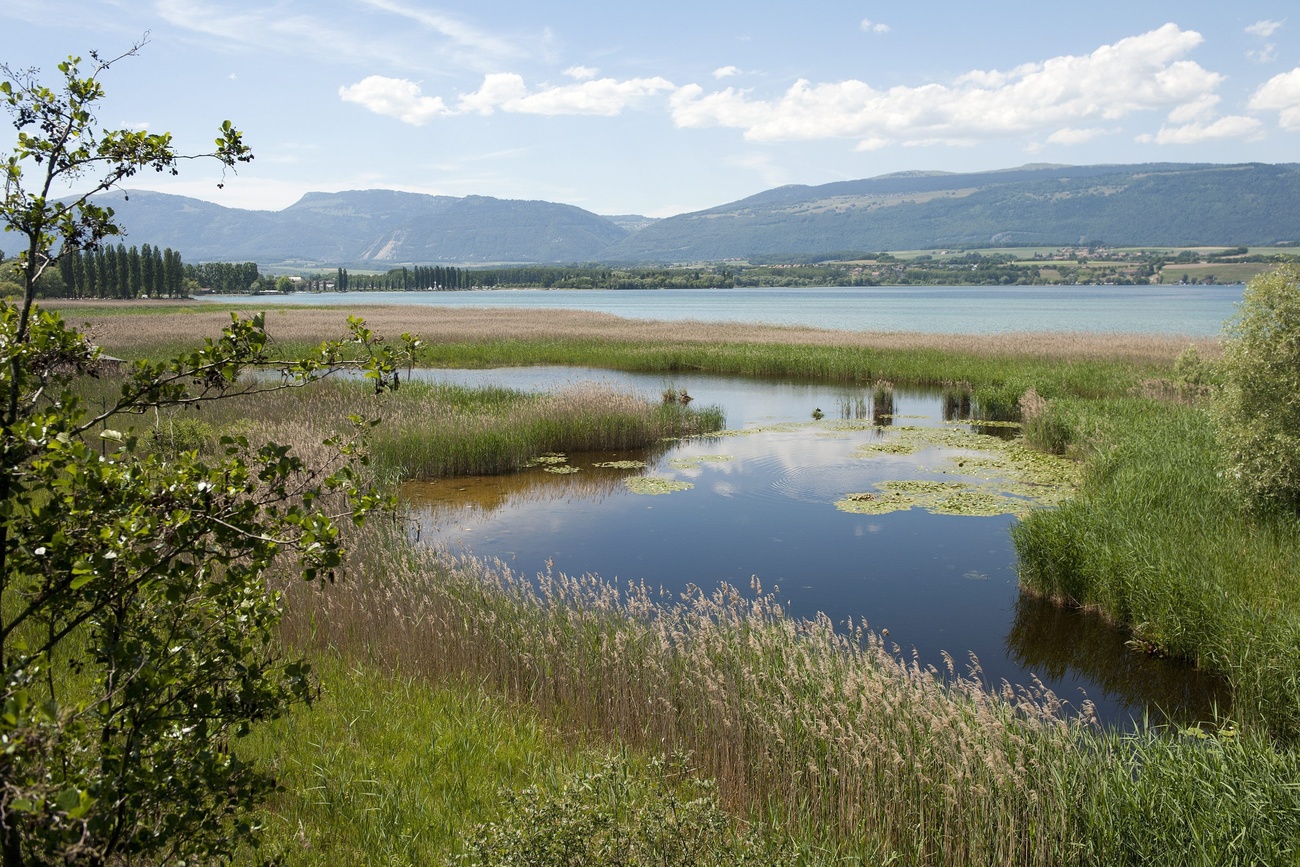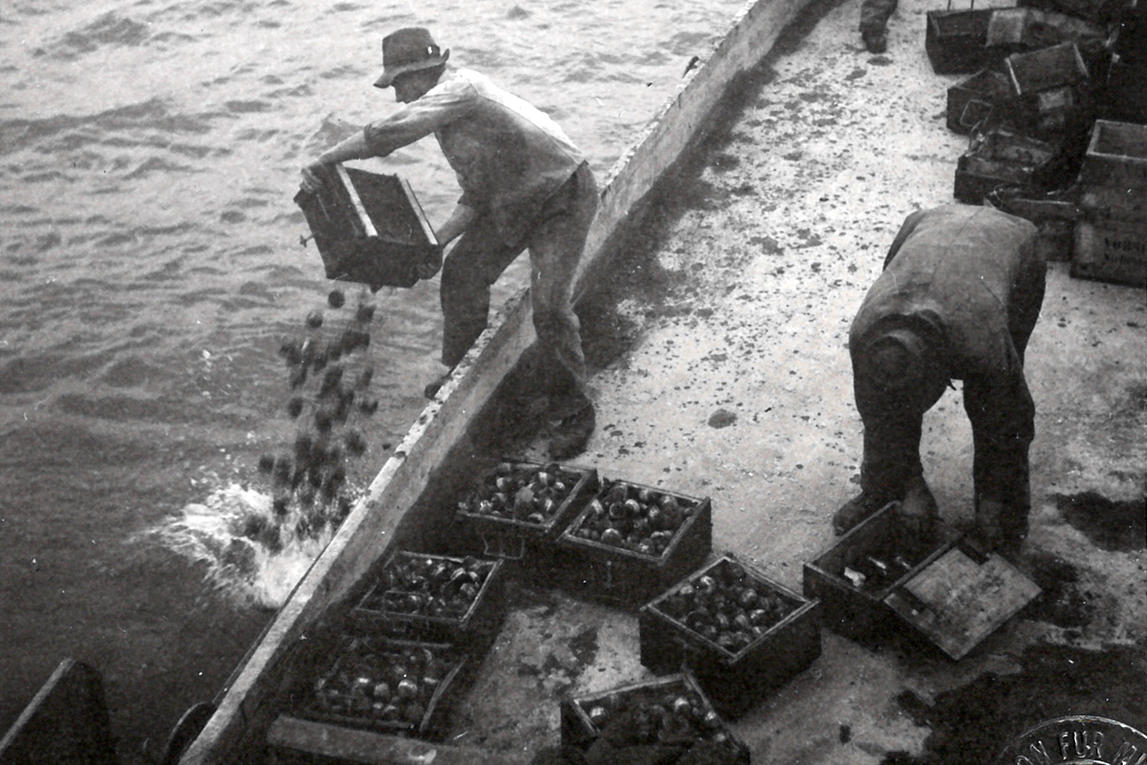
Thousands of tonnes of munitions found at the bottom of Swiss lake

Around 4,500 tonnes of Swiss Army munitions lie dormant at the bottom of Lake Neuchâtel in western Switzerland, it has been confirmed.
The munitions come from a shooting range near the lake that the air force has used for almost 100 years, a defence ministry spokesman said on Friday, confirming an earlier Swiss public television, SRF, reportExternal link.
In November the defence ministry will examine what to do about the submerged munitions.
The shooting range is located opposite the Grande Cariçaie nature reserve, which stretches for 40 kilometres along the south-eastern shore of Lake Neuchâtel.
The army reportedly tested the lake water quality in 2015 and did not find any significant signs of pollution, the defence ministry said. Consequently, the army and environmental organisations decided it was not necessary to take any action at the time.
But after a series of recent underwater photographs taken in Lake Neuchâtel in August by the French “Odysseus” groupExternal link, the Swiss environmental NGO Pro Natura is urging the army to take action.
“Over time, heavy metals will be released into the environment,” Marc Vonlanthen, president of Pro Natura Fribourg, told the SRF news programme “10vor10”.

More
Unexploded munitions continue to reverberate in Switzerland
Elsewhere in Switzerland, thousands of tonnes of old Second World War bombs, grenades and other explosives lie at the bottom of Swiss lakes. Between 1948 and 1967, the army dumped an estimated 8,120 tonnes of munitionsExternal link in lakes Thun, Lucerne, Brienz and Walen. Private firms also got rid of munitions in Lake Zurich, the Rotsee near Lucerne and Lake Geneva.
But the Swiss authorities say that they have not affected water quality. In its latest environmental monitoring report publishedExternal link on May 19, the defence ministry said sediment samples tested from lakes Thun, Brienz, Lucerne and Walen in 2019 had not revealed any “negative impact of submerged munitions on water quality”. Similar results were observed in 2016.
The idea of disposing of the piles of old dangerous ordinance by submerging it in Swiss lakes first started in the 1920s, but quickly gathered pace after the Second World War when Switzerland found itself with huge stock of unused weapons and ammunitions on its hands.
Since 2012, regular army field reports and tests of sediment and water samples have reached similar conclusions: there is no pollution to lakes monitored by the federal authorities. Bringing up old shells and other munitions would be a risky exercise for the local population and contractors, with possible environmental damage also a concern.

In compliance with the JTI standards
More: SWI swissinfo.ch certified by the Journalism Trust Initiative

























You can find an overview of ongoing debates with our journalists here . Please join us!
If you want to start a conversation about a topic raised in this article or want to report factual errors, email us at english@swissinfo.ch.